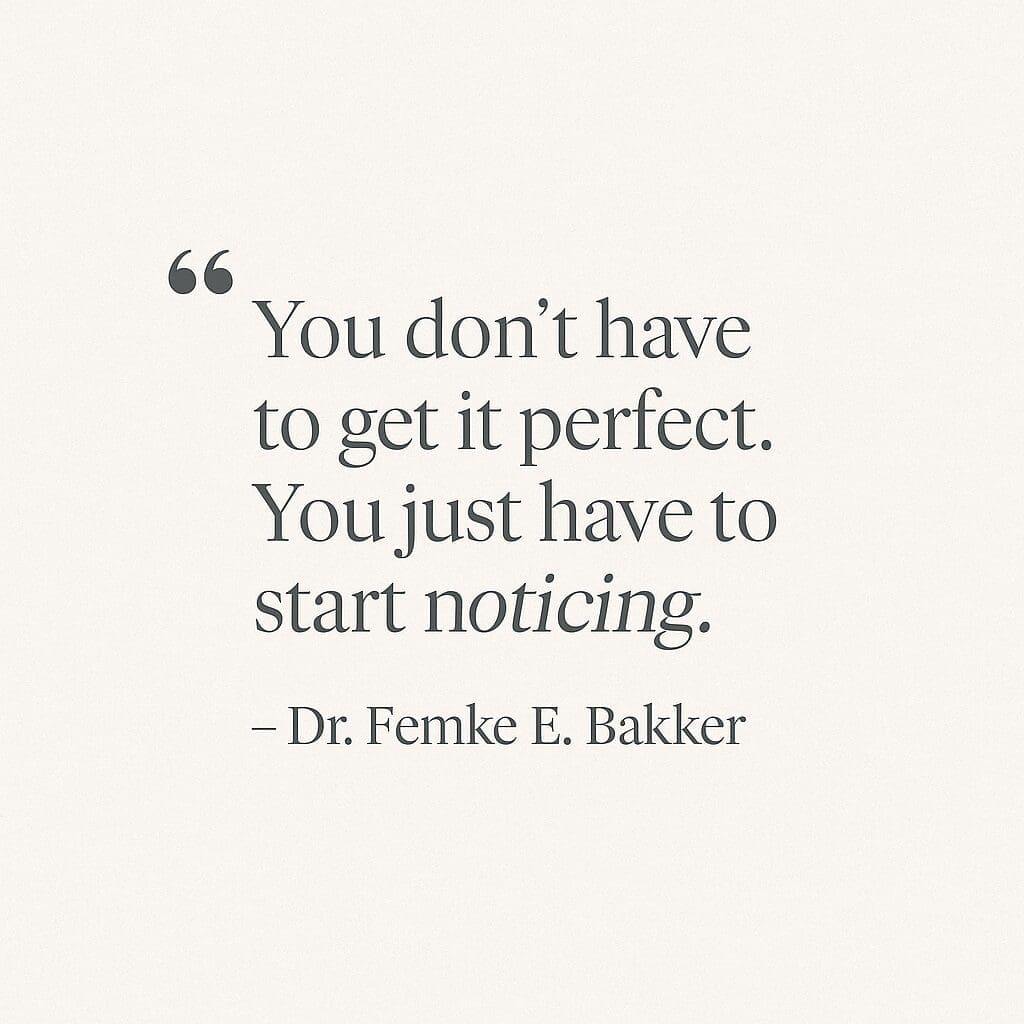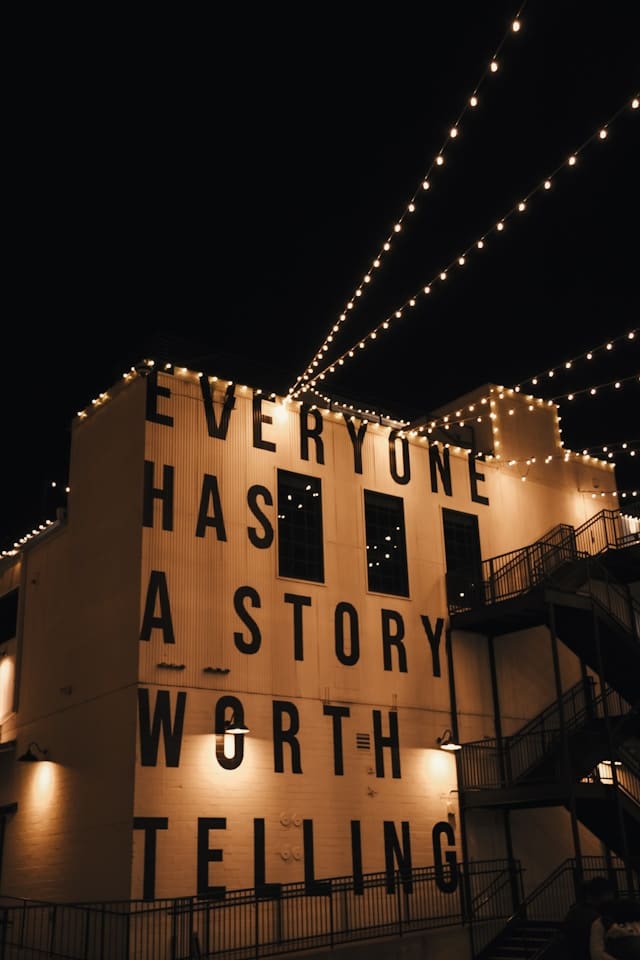Dr. Femke E. Bakker
You’re Not Lazy, Broken, or Behind
If you’re here, chances are you’re someone who’s already done a lot of inner work. You’re self-aware and self-reflective. You’ve read the books, had the insights, maybe even started setting boundaries. But somehow, when life gets overwhelming again, your old habits resurface. You push through. You overthink. You try harder. And then, somewhere in your stomach, your shoulders, or behind your eyes, you feel it:
Something is off. It feels as if you plummet back to once, before you did all that work. And it’s as if you’ve no idea anymore how to stop being hard on yourself. And there it is, that tough but familiar voice.
“Why are you like this?”
“You’re too much.”
“You should’ve figured this out by now.”
I know that voice. I used to live with her.
The Subtle Signs of Self-Criticism
Being hard on yourself doesn’t always sound harsh. Sometimes, it feels like:
- A pit in your stomach: like you’ve done something wrong
- Tension in your shoulders, as if you’re bracing for punishment
- An inner pressure to “perform” kindness instead of truly feeling it
- That shift in your body image: one day you feel radiant, the next you feel too much, not enough, or both
It’s often subtle. When you’re used to feeling like this, it might even seem reasonable. Like you deserve to feel not that well. And underneath, there is the same message:
You don’t get to rest. You don’t get to be flawed. You have to earn feeling good.
And that hurts. Because the feeling of earning can feel so far away, that you give up by the mere thought of it.
Why We’re So Hard on Ourselves
There’s usually a story underneath it.
Maybe, like me, you grew up being the responsible one, the strong one. The one who adapted, who helped, who kept things going. Maybe you were praised for how reliable or successful you were, but no one noticed what it cost you.
Maybe you learned to read everyone else’s emotions before your own. Maybe you were loved for your usefulness. Or maybe it was never quite safe to be vulnerable, so strength became your survival strategy.
So when something goes wrong now, even slightly, that old story comes online again.
“I should’ve known better.”
“Why did I think I could take time for myself?”
“I’ve done all this work… why am I still feeling like this?”
But here’s the truth: selfgentleness isn’t about being fixed. It’s about treating yourself differently, especially when things feel off.
What Helped Me Begin to Shift
At first, I didn’t even know I was being hard on myself. I just felt off, tight in my body, spiraling in thoughts. The process that eventually helped me was simple, but not easy.
Here’s what it looked like:
- Notice the signal.
A pit in my stomach. Tight shoulders. That’s where I learned to pay attention. - Pause the story.
In the beginning, I couldn’t always find the thought. But I told myself: “Something in me feels bad. That means I’m believing something painful.”
And that was enough to begin. - Find some relief.
I would try a softer thought. Not one that “solved” everything, but one that helped me exhale: “I can take a vacation from this thought.”
“I’ll come back to it later if I need to.”
Or I’d go outside. Listen to wind through the trees. Touch the ground with bare feet. Sounds silly maybe, but connecting with something neutral and real would help me feel at least a bit more calm. - Practice without perfection.
Even now, I sometimes forget. But now, I recognize it sooner. I trust the feeling. And I then know what to do to return to be gentle with myself.

If You Recognize This, I Want You To Know…
You’re not failing when you’re struggling again.
It simply means that you’re growing, because now you notice when you’re not being selfgentle. And that awareness? It means your tolerance for harshness is lowering. That’s a very good sign.
You don’t have to get it perfect. You just have to start noticing.
And then, moment by moment, choosing something that feels a little better.
Selfgentle Answers for Curious Searchers
Why am I so hard on myself?
Usually because you learned, somewhere along the way, that being strong or helpful made you worthy. That belief can linger long after the situation has changed.
How do I stop being so critical toward myself?
Start by noticing how it feels in your body—tension, pressure, urgency. Then shift gently: breathe, walk, or replace the thought with one that gives even a little relief.
What’s the best way to stop negative self-talk?
Don’t try to fight it. Instead, pause it. Tell yourself, “I’ll come back to this later.” Often, you won’t want to.
What’s one phrase I can use to be kinder to myself?
“I’m doing the best I can with what I know—and I’m allowed to rest.”
Please Know This
You are exactly right, just like you are.
You are so loveable, always.
I’m here to support you, if you want some help to find your own selfgentleness perspective. My Free Selfgentleness Starter Guide + Meditation is ready to be downloaded, so you can try what selfgentleness can do for you.
Download Your Free Starter Guide here
Or, if you would like to dive deeper together with me, then sign up for the waitlist for the Selfgentleness Academy. It’s a highly affordable monthly membership where together with me and a loving community of people who exactly understand who you are you start your personally tailored selfgentleness process. Is you want to read more or want to sign up for the waitlist, go here:
Learn more & join the waitlist
Be selfgentle,
All love, Femke





